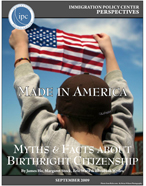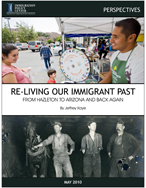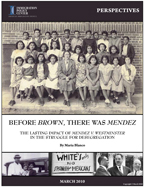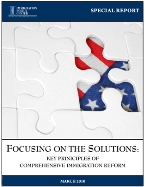 The Fourteenth Amendment to the Constitution is enshrined in U.S. history as the cornerstone of American civil rights, ensuring due process and equal protection under the law to all persons. Equally important, however, is the Fourteenth Amendment’s affirmation that all persons born or naturalized in the United States and subject to its jurisdiction are, in fact, U.S. citizens:
The Fourteenth Amendment to the Constitution is enshrined in U.S. history as the cornerstone of American civil rights, ensuring due process and equal protection under the law to all persons. Equally important, however, is the Fourteenth Amendment’s affirmation that all persons born or naturalized in the United States and subject to its jurisdiction are, in fact, U.S. citizens:
All persons born or naturalized in the United States and subject to the jurisdiction thereof, are citizens of the United States and of the State wherein they reside. No State shall make or enforce any law which shall abridge the privileges or immunities of citizens of the United States; nor shall any State deprive any person of life, liberty, or property, without due process of law; nor deny to any person within its jurisdiction the equal protection of the laws.
Most recently, pundits used the issue of birthright citizenship to challenge the legitimacy of both major parties’ candidates in the 2008 presidential election. Senator John McCain was born in 1936 on a U.S. military base in the Panama Canal Zone, where his father—a U.S. Naval officer—was posted, causing some to question whether McCain is a natural-born citizen. President Barack Obama was born to a U.S.-citizen mother and an immigrant father in Hawaii in 1961, two years after Hawaii became the 50th U.S. state. Even months into his presidency, some conspiracy theorists still question President Obama’s eligibility to serve.Read more...
Published On: Tue, Sep 15, 2009 | Download File







